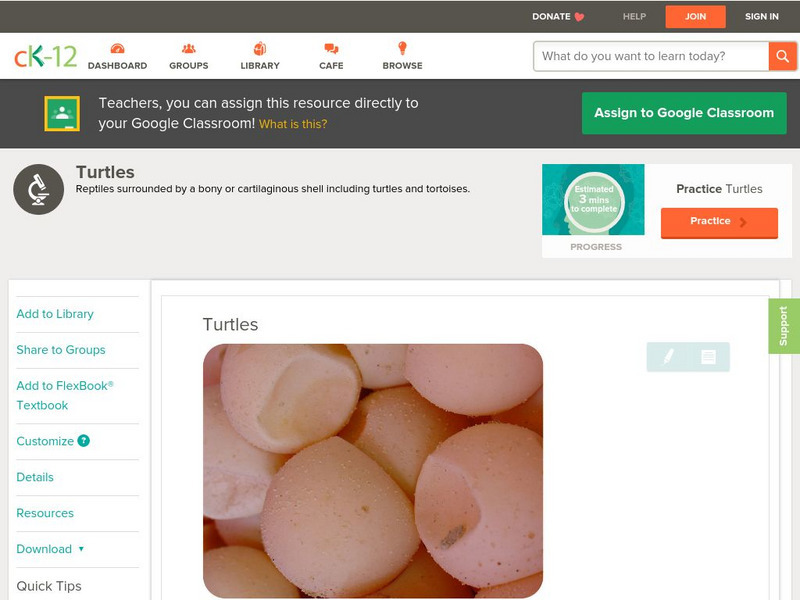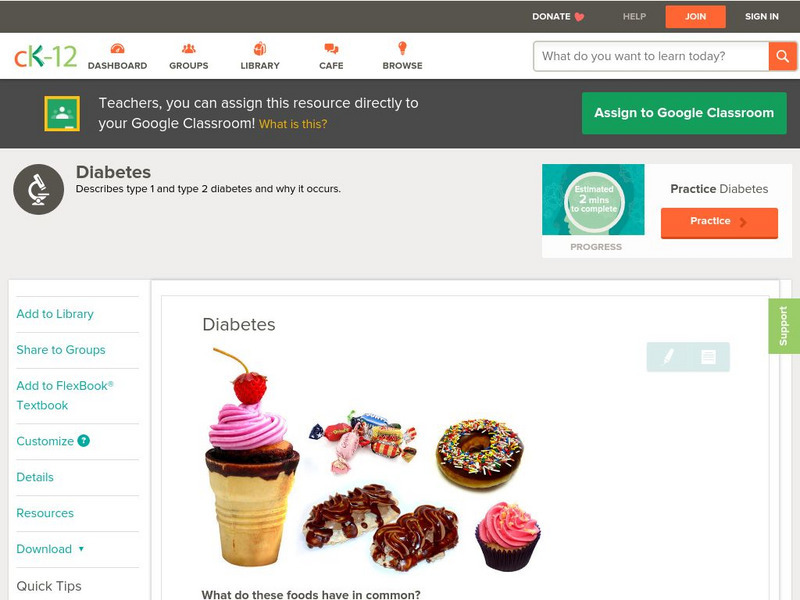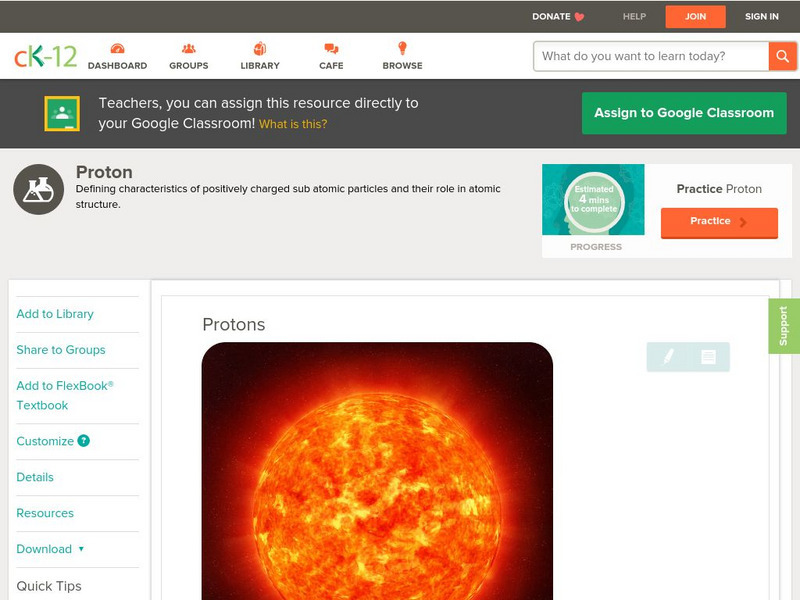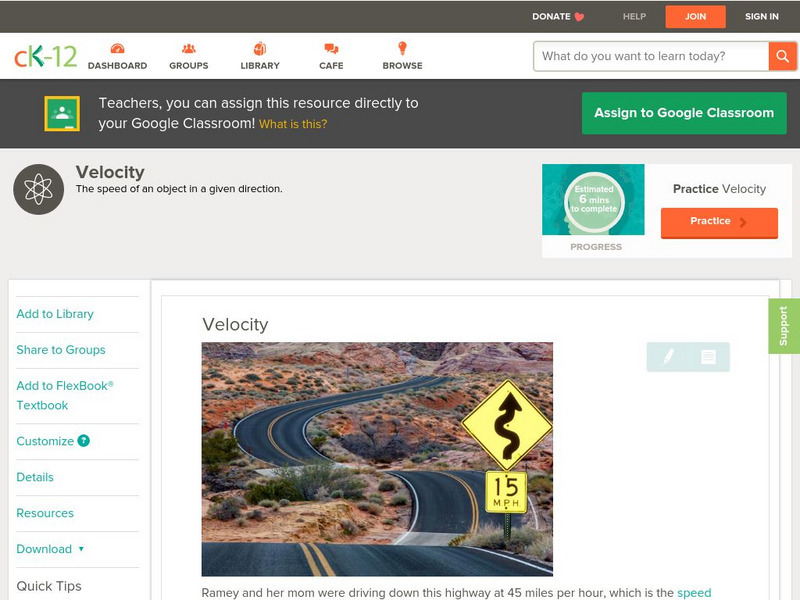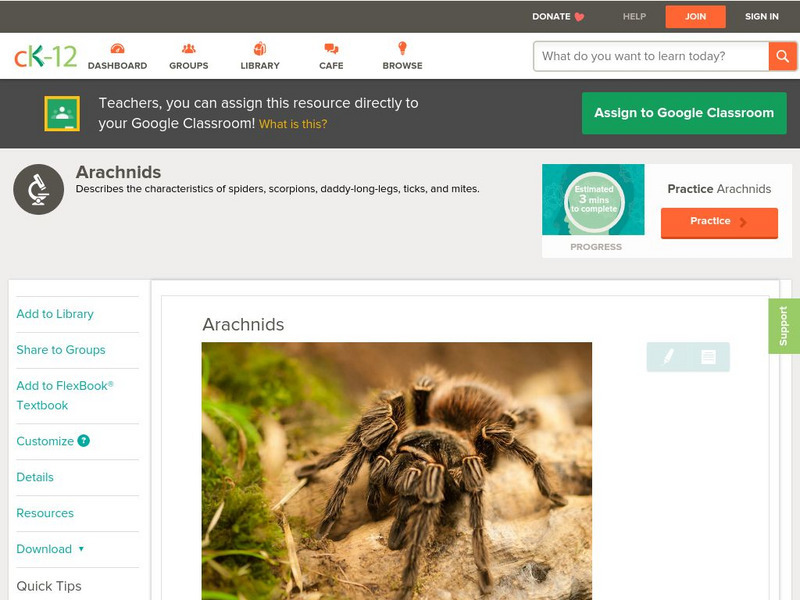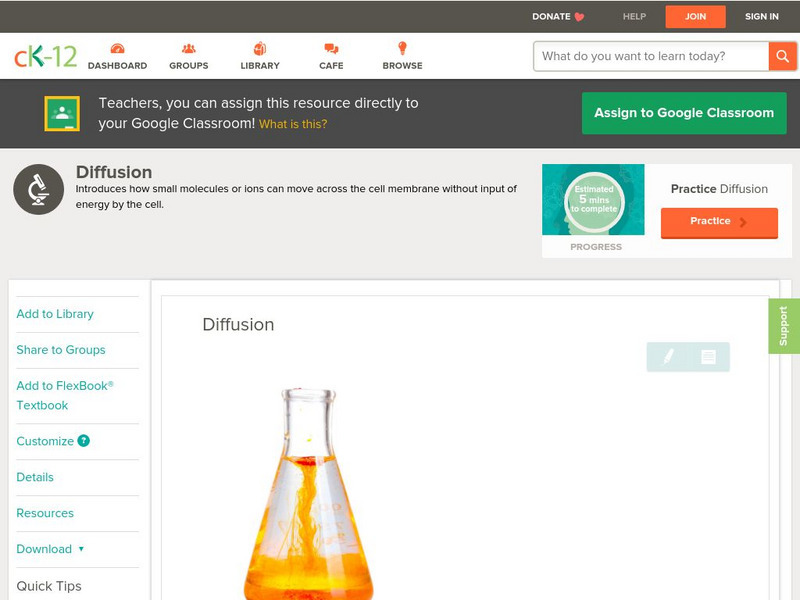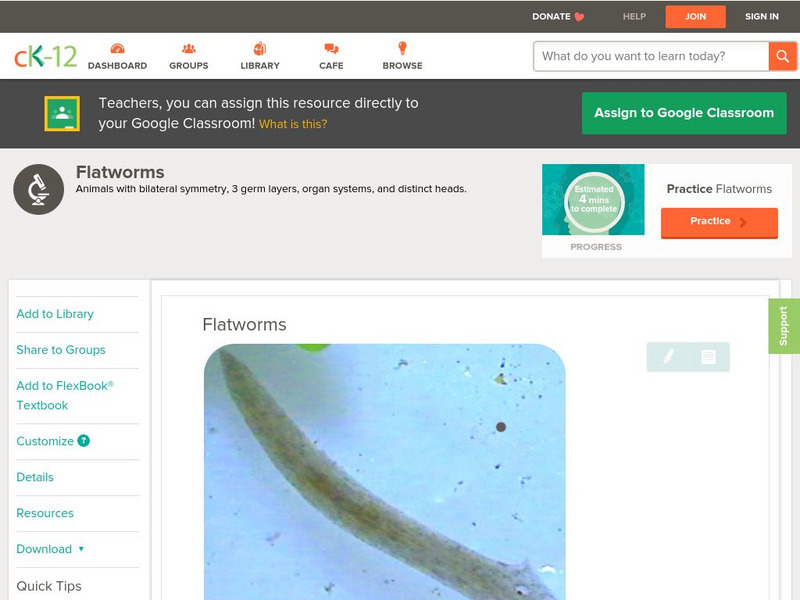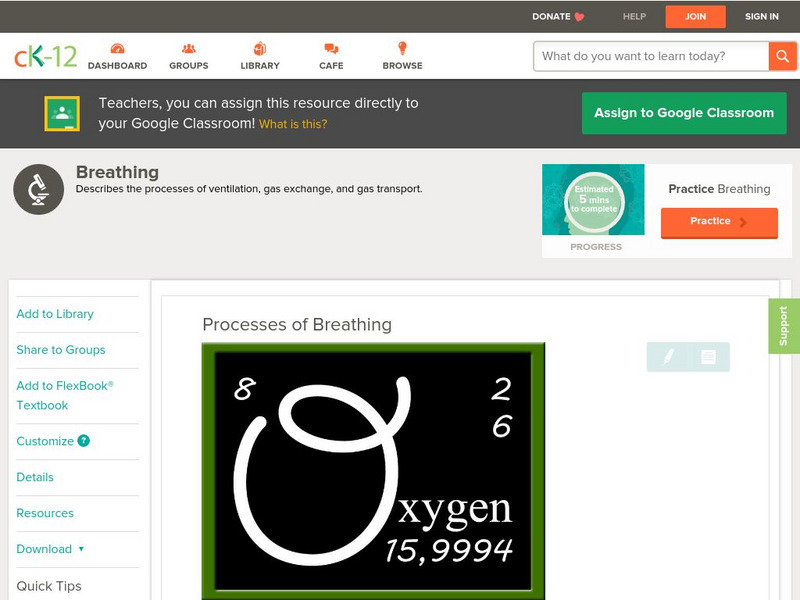Hi, what do you want to do?
CK-12 Foundation
Ck 12: Life Science: Sponges
[Free Registration/Login may be required to access all resource tools.] Sponges are classified in the phylum Porifera, from the Latin words meaning "having pores." Sponges are sessile, meaning they cannot move, so they filter water...
CK-12 Foundation
Ck 12: Life Science: Turtles
[Free Registration/Login may be required to access all resource tools.] Turtles are reptiles in the order Testudines. Most turtle bodies are covered by a special shell developed from their ribs. About 300 species are alive today, and...
CK-12 Foundation
Ck 12: Physical Science: Inertia
[Free Registration/Login may be required to access all resource tools.] Explains inertia and how it affects motion, the relationship between inertia and mass, and how to overcome inertia.
CK-12 Foundation
Ck 12: Physical Science: Mirrors
[Free Registration/Login may be required to access all resource tools.] How a mirror forms images and how to distinguish between real and virtual images, and the different types of mirrors and the images they produce.
CK-12 Foundation
Ck 12: Physical Science: Solids
[Free Registration/Login may be required to access all resource tools.] Properties of solid matter and comparison of different types of solids.
CK-12 Foundation
Ck 12: Life Science: Diabetes
[Free Registration/Login may be required to access all resource tools.] Diabetes is a non-infectious disease in which the body is unable to control the amount of sugar in the blood. People with diabetes have high blood sugar, either...
CK-12 Foundation
Ck 12: Life Science: Muscles and Exercise
[Free Registration/Login may be required to access all resource tools.] Regular physical exercise is important in preventing lifestyle diseases such as cardiovascular disease, some types of cancer, type 2 diabetes, and obesity. Regular...
CK-12 Foundation
Ck 12: Life Science: Pedigree Analysis
[Free Registration/Login may be required to access all resource tools.] A pedigree is a chart that shows the inheritance of a trait over several generations. A pedigree is commonly created for families, and it outlines the inheritance...
CK-12 Foundation
Ck 12: Life Science: Tropisms
[Free Registration/Login may be required to access all resource tools.] Plants may not be able to move, but they are able to change how they grow in response to their environment. Growth toward or away from a stimulus is known as a...
CK-12 Foundation
Ck 12: Physical Science: Alloys
[Free Registration/Login may be required to access all resource tools.] Definition of alloys and examples.
CK-12 Foundation
Ck 12: Physical Science: Buoyancy
[Free Registration/Login may be required to access all resource tools.] Definition of buoyant force and how weight and density relate to buoyant force and the ability to float.
CK-12 Foundation
Ck 12: Physical Science: Distance
[Free Registration/Login may be required to access all resource tools.] Explains what distance is, its SI unit, and how to use maps to measure distance.
CK-12 Foundation
Ck 12: Physical Science: Plasma
[Free Registration/Login may be required to access all resource tools.] Properties of matter in the plasma state and where plasma is found.
CK-12 Foundation
Ck 12: Physical Science: Protons
[Free Registration/Login may be required to access all resource tools.] Protons and how they relate to elements, and what protons are made of.
CK-12 Foundation
Ck 12: Physical Science: Simple Machines
[Free Registration/Login may be required to access all resource tools.] What a machine is, the three ways that machines make work easier and simple and compound machines.
CK-12 Foundation
Ck 12: Physical Science: Velocity
[Free Registration/Login may be required to access all resource tools.] Difference between velocity and speed, using vector arrows to represent velocity, objects that have different velocities and how to calculate average velocity.
CK-12 Foundation
Ck 12: Life Science: Adulthood and Aging
[Free Registration/Login may be required to access all resource tools.] When is a person considered an adult? That depends. Most teens become physically mature by the age of 16 or so. But they are not adults in a legal sense until they...
CK-12 Foundation
Ck 12: Life Science: Arachnids
[Free Registration/Login may be required to access all resource tools.] Arachnids are a class of joint-legged invertebrates in the subphylum Chelicerata. They live mainly on land but are also found in freshwater and in all marine...
CK-12 Foundation
Ck 12: Life Science: Bony Fish
[Free Registration/Login may be required to access all resource tools.] There are almost 27,000 species of bony fish, which are divided into two classes: ray-finned fish and lobe-finned fish. Most bony fish are ray-finned. These thin...
CK-12 Foundation
Ck 12: Life Science: Chordates
[Free Registration/Login may be required to access all resource tools.] Did you know that fish, amphibians, reptiles, birds, and mammals are all related? They are all chordates. Chordates are a group of animals that includes vertebrates,...
CK-12 Foundation
Ck 12: Life Science: Diffusion
[Free Registration/Login may be required to access all resource tools.] The process of molecules moving from an area where there are lots of molecules to an area where there are fewer molecules is known as diffusion. The diffusion of...
CK-12 Foundation
Ck 12: Life Science: Flatworms
[Free Registration/Login may be required to access all resource tools.] The word "worm" is not very scientific. But it is a word that informally describes animals (usually invertebrates) that have long bodies with no arms or legs. Worms...
CK-12 Foundation
Ck 12: Life Science: Human Egg Cells
[Free Registration/Login may be required to access all resource tools.] When a baby girl is born, her ovaries contain all of the eggs they will ever produce. But these eggs are not fully developed. They develop only after she starts...
CK-12 Foundation
Ck 12: Life Science: Processes of Breathing
[Free Registration/Login may be required to access all resource tools.] Breathing is only part of the process of bringing oxygen to where it is needed in the body. After oxygen enters the lungs, what happens? Learn more about processes...
Other popular searches
- Ms Access 2003
- Ms Access 2007
- Ms Access Databases
- Using Ms Access
- Activities Using Ms Access
- Ms Access Lessons Plan
- Activities Ms Access
- Ms Access 2010
- Ms Access 2007 Weather
- Ms Access 2010 Lesson






